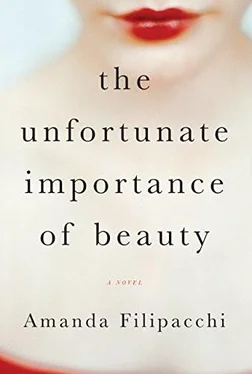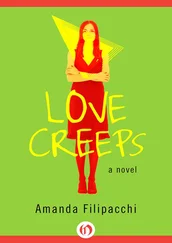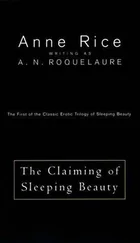“They think I got fat and ugly.”
“Really? Is there anyone, other than your mother, who knows that this is just a disguise and not the way you really look now?”
“Only my four closest friends.”
“If I were to ask your mother or your closest friends why you disguise yourself this way, what would they tell me?”
She shrinks a little further into her chair, and again can’t answer.
“What would they tell me?” I repeat.
BARB
As soon as my therapy session is over, I rush home, slip some evening wear over my bloat wear, and find my friend Georgia already waiting for me in a cab in front of my building. I scoot in beside her. She shifts along the seat to give me the room I need.
A bouquet of sunflowers rests on her lap.
“For Lily?” I ask.
She nods.
The driver carries us away. We tell him to go as fast as he can because we’re late for Lily’s concert. Or rather, we’re late for a mission she’s sent us on before the concert. At twenty-five, Lily is the youngest of our group of five friends, and the most talented. She asked us to get to the concert hall early so that we tell her whether Strad, the jerk she’s in love with, shows up.
As the cab driver zigzags through traffic, I look at Georgia and say, “Don’t you wish we could go to Strad’s store and just shake him and say, ‘Are you blind? Don’t you see how extraordinary Lily is?’”
“That’s the problem. He’s not blind.”
“Georgia, please.”
The driver makes a sharp left and Georgia gets knocked against her door. “Ow!” she yelps, rubbing her right shoulder.
I myself have toppled onto the space between us.
“Hey, watch it!” Georgia yells at me when she sees I’m lying on her laptop.
“Why’d you bring that?” I ask. “Are you planning to write during the concert?”
Before she can answer, the driver makes a sharp right, and it’s Georgia’s turn to land on her laptop and mine to bang against my door, though I suffer no injury due to my fake fat, which bounces me right back into place.
“Maybe,” Georgia answers. “I like writing to Lily’s music.”
Georgia Latch is a successful novelist. The five novels she published were critically acclaimed, translated into two dozen languages and taught in universities. The second one, The Liquid Angel, was made into a film. She thinks her career would be even more successful if she were more prolific, but her writing process is slow. So she’s always struggling to find ways to write more. Her recent method has been to take her laptop wherever she goes, in hopes of getting work done.
The traffic slows and the driver can’t weave anymore. We are at a standstill.
We finally arrive, late, at Zankel Hall, a concert venue at Carnegie Hall. Anxious about our tardiness and not wishing to waste a moment, we pay and open the cab doors before the driver comes to a full stop. A pedestrian on a cell phone dives in as soon as we’ve burst out.
Midway to the concert hall’s entrance, Georgia stops in her tracks. “My laptop!”
We spin around. The taxi’s gone.
“No, no, no, no, no,” she says and drops the sunflowers.
Neither of us took a receipt, so we don’t have the taxi’s medallion number.
Georgia is bent over, hands on knees, repeating, “Oh my God.”
She has often told me she thinks the novel she’s been working on for the past few years will be her breakthrough, the one that will win the most awards, the one that will garner the best reviews, the one that will sell the most copies — the very same one that is now taking a ride in a vanished taxicab somewhere in New York City. Georgia hasn’t backed up her work in three and a half years, ever since her external hard drive broke while she was completing her last novel. She never got around to buying a new one.
“Have you e-mailed a copy to anyone? Or even to yourself?” I ask her. “Is it printed out?”
“No, no, and no. I never showed it to anyone.”
I pick up the bouquet of sunflowers and put my arm around Georgia, holding her up. “I’ll call the taxi company,” I tell her. “I’ll keep calling, until someone turns it in.”
I lead her inside the building. We sit on a bench in the entrance hall. Georgia cries, her face in her hands. After ten minutes of unsuccessful phone calls which begin with directory assistance, move on to the Taxi and Limousine Commission, and end up with the Central Park Precinct, I’m told by the precinct that no laptop has yet been reported found, and that I should call later to check if that status has changed.
Georgia is staring at me with watery eyes. Her face is red and puffy. Strands of her short dark hair are stuck to the tears on her cheeks.
Our friend Jack Felsenfeld comes out from inside the theater. Though he’s only twenty-nine, he walks with a limp and a cane.
“What are you guys doing?” he asks. “Penelope and I have been here for half an hour already.”
I tell him what happened.
He leans his cane against the bench and squats in front of Georgia. He holds her hands, looks up at me, and asks, “Did you call the Central Park Precinct?” Being an ex-cop, Jack knows these things. He could have saved me time.
“Yeah,” I say.
“You have to keep calling. It might get turned in.”
Not forgetting about why we’re here, I tell him, “Let me go backstage and say hi to Lily. Is Strad here?”
“No sighting yet.”
I ENTER LILY’S small dressing room right as the Rolling Stone magazine journalist who’s been interviewing her is making his exit.
I close the dressing room door behind me.
It’s just me and Lily. And the mirror.
Mirrors take on a whole new meaning when Lily’s in the room. They become a loaded silence.
“How are you holding up?” I ask her.
“Fine.” She’s standing at the sink, soaking her hands in hot water, which she always does before a performance.
“Will you be okay if Strad doesn’t show? Or if he does show?”
“I’ll try to be.”
I know if Strad doesn’t show up she’ll be devastated.
“These are from Georgia,” I say, giving her the sunflowers.
“That’s sweet.” She puts the flowers in a vase of water.
I decide not to tell her about Georgia’s lost laptop in case it disrupts her preparation. “Just remember, you are fantastic. You’ll be great. You’ll knock ’em dead,” I say, staring earnestly into her eyes. I hug her.
The sad thing is, now that I’ve known Lily for eight years, I find her nothing but beautiful. My perception has been skewed by affection. I know what she looks like to others because I remember what she looked like to me when I first met her. My breath was taken away, repeatedly, by the ugliness of her features and their arrangement. I found myself hoping she’d change expressions, but every time she did, the new configuration was worse than the last.
Lily is not disfigured. Her face is not deformed or medically abnormal. It is simply extremely ugly — the kind of ugliness that is inoperable. Any attempt at improvement would be fatal. Changing the distance between one’s eyes is not surgically possible. In fact, it is one of the few facial characteristics that cannot be altered. But Lily’s eyes being far, far too close together is only one of her multitude of flaws. She does have one attractive feature, though. Ironically: her eyes. But only when looked at one at a time, in isolation.
As for her body, it’s fine but irrelevant because people always focus on her face.
Despite the fact that Lily takes some getting used to visually, in every other way she is pure loveliness.
When I get back to our seats, Jack and Georgia are chatting quietly. Our friend Penelope, looking sumptuous and beautifully dressed as usual, is pacing the aisle at the other end of the theater, keeping an eye out for Strad.
Читать дальше












